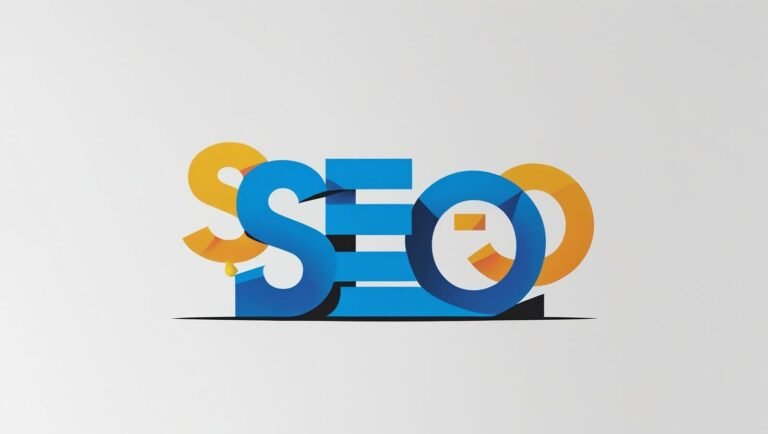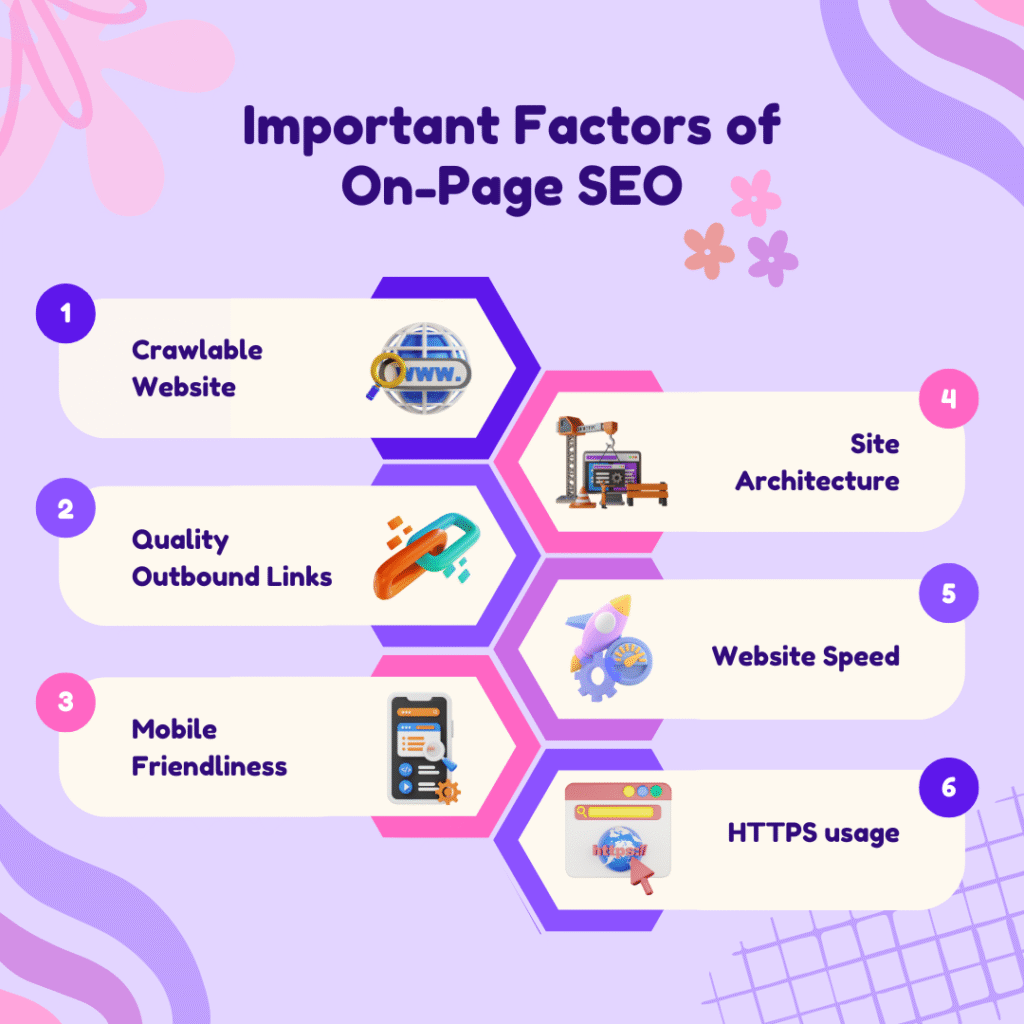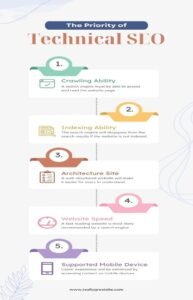A Comprehensive Introduction of SEO Basics.
Increasing organic traffic to your website or blog is largely dependent on search engine optimization or SEO. This article will walk you through the basics of SEO if you’re new to it, covering off-page SEO, on-page SEO, and technical optimizations. By the end, you’ll have a clear understanding of SEO and a useful webpage optimization guide.

What is SEO ?
SEO is the process of optimizing the websites to rank it naturally on Google or any search engines without paying ads. It enables your website to rank higher on search engines like Google SEO is crucial for attracting targeted free traffic. You risk losing potential customers to competitors if your website is not seen by search engines. The some advantages of SEO are a rise in organic traffic in place of paid advertisements, an increase in credibility, Long-term expansion, and outperforms rivals.
Three main categories of SEO exist.
- On-page SEO
- Off-page SEO
- Technical SEO
1. Gain an understanding of on-page SEO for beginners:
Any successful website SEO strategy must include on-page SEO, which optimizes the HTML and content of your website to achieve better results. It’s an important part of the fundamentals of SEO and increased exposure in conjunction with off-page SEO. Learning on-page SEO for newcomers entails concentrating on keyword optimization, which includes organically incorporating material terms like SEO basics, SEO for new beginners, and understanding SEO into headlines, headings, and content. Meta markers and descriptions also optimize the content and make readers click. Also, the quality of the content is essential; it should be helpful to answer the particular queries of your followership. Also, optimizing structural rudiments like URLs, headings, images, and internal linking is a part of effective on-page SEO. Short instructional URLs that are packed with keywords are ideal to effectively communicate the subject to the runner. Structured content with keyword-concentrated heads is made possible by the applicable use of heads( H1 to H6). Adding instructional alt textbook to Filmland. The on-page SEO helps in SEO applicability and availability. Last but not least, incorporating internal links to facilitate runners like learn on-page SEO then improves point navigation and aids search engines in comprehending content connections, which will help you further become an expert in on-page
includes organically incorporating material terms like SEO basics, SEO for new beginners, and understanding SEO into headlines, headings, and content. Meta markers and descriptions also optimize the content and make readers click. Also, the quality of the content is essential; it should be helpful to answer the particular queries of your followership. Also, optimizing structural rudiments like URLs, headings, images, and internal linking is a part of effective on-page SEO. Short instructional URLs that are packed with keywords are ideal to effectively communicate the subject to the runner. Structured content with keyword-concentrated heads is made possible by the applicable use of heads( H1 to H6). Adding instructional alt textbook to Filmland. The on-page SEO helps in SEO applicability and availability. Last but not least, incorporating internal links to facilitate runners like learn on-page SEO then improves point navigation and aids search engines in comprehending content connections, which will help you further become an expert in on-page
2. Master Off-Page SEO:
The phrase off-page SEO refers to any actions taken outside of your own website that have an impact on your search engine results page (SERP) rankings. It is frequently covered in detail in an extensive website SEO guide and is a crucial part of any comprehensive SEO strategy. Online popularity, authority, and credibility are also increased through this off-page SEO. For off-page SEO, backlink building is must must-important component. Links to your content from other reputable websites let search engines know that your website is worthwhile and trustworthy, which could improve your rankings. Websites get confident through backlinks, as well as it includes social media marketing. You can increase website traffic and visibility by sharing your content on social media platforms like Facebook, LinkedIn, and Twitter. Even though they aren’t directly ranking factors, social signals like likes, shares, and comments improve your online visibility and engagement, which helps SEO in an indirect way. Anyone who is starting SEO must understand knowledge off-page and on-page SEO. Both are necessary to develop a thorough SEO strategy. These components are part of the SEO fundamentals and must be mastered in order to fully comprehend SEO. When combined, off-page and on-page SEO tactics raise the exposure, authority, and search engine ranking of your website
3. The foundation of writing is technical SEO:
 Technical SEO is the foundation of website optimization, and anyone learning the fundamentals of SEO or following website SEO guide needs to understand it. As opposed to on-page and off-page SEO, which focus on content and external signals, technical SEO optimizes the backend structure of your website so that search engines can easily crawl, index, and understand your content. Crucial elements of technical SEO for novices include enhancing site speed, ensuring mobile friendliness, creating an XML sitemap, fixing crawl problems, and utilizing HTTPS for site security. Optimizing the structure of your website and using clear keyword-friendly URLs are also necessary to enable effective navigation for both users and search engines. A crucial part of comprehending SEO is realizing that even the best content won’t rank well if search engines can’t access or comprehend it properly. Technical SEO works in the background to support your on-page SEO efforts while ensuring your website is fast, secure, and technically sound.
Technical SEO is the foundation of website optimization, and anyone learning the fundamentals of SEO or following website SEO guide needs to understand it. As opposed to on-page and off-page SEO, which focus on content and external signals, technical SEO optimizes the backend structure of your website so that search engines can easily crawl, index, and understand your content. Crucial elements of technical SEO for novices include enhancing site speed, ensuring mobile friendliness, creating an XML sitemap, fixing crawl problems, and utilizing HTTPS for site security. Optimizing the structure of your website and using clear keyword-friendly URLs are also necessary to enable effective navigation for both users and search engines. A crucial part of comprehending SEO is realizing that even the best content won’t rank well if search engines can’t access or comprehend it properly. Technical SEO works in the background to support your on-page SEO efforts while ensuring your website is fast, secure, and technically sound.
